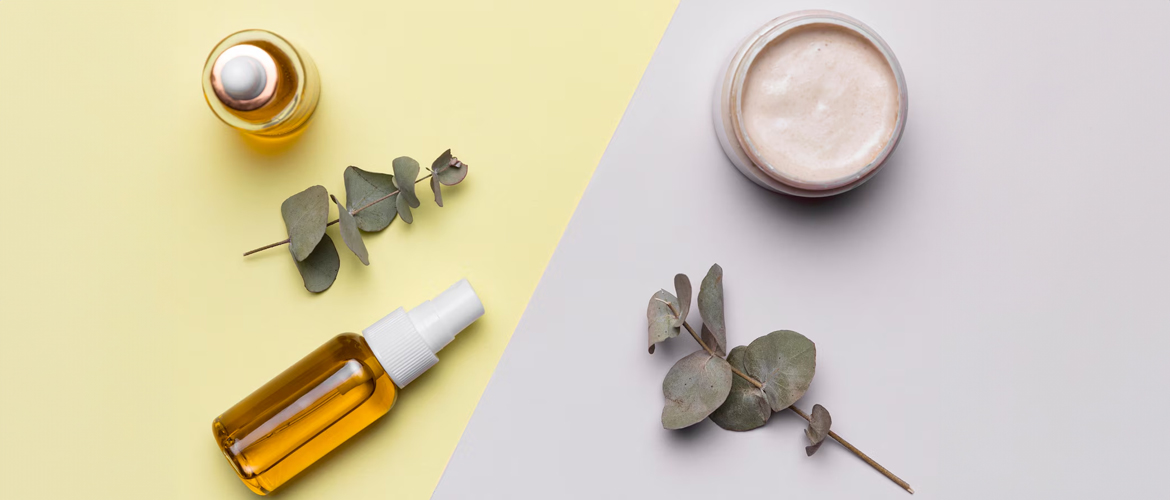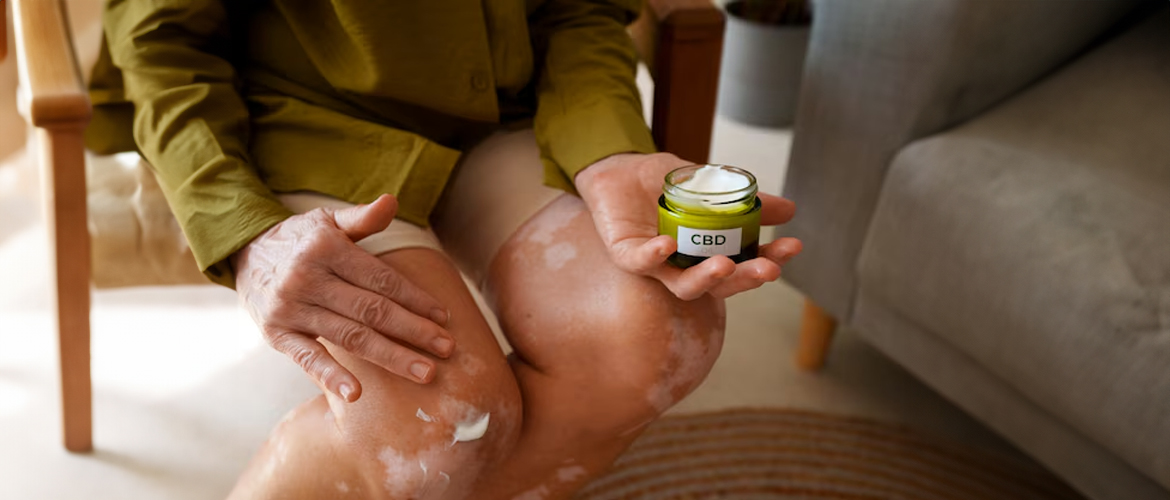Are you loving that radiant, no-makeup look that's trending in the beauty world? The secret to achieving this fresh, glowing complexion lies in one key element: hydration! With the right combination of the best face oil and a good moisturizer, anyone can attain that coveted dewy finish.
Facial oils have become a must-have for skincare enthusiasts due to their nourishing ingredients and ability to tackle various skin concerns.
But don’t count moisturizers out just yet. They play a crucial role in your skincare routine, too. What does moisturizer do? It helps to lock in moisture, creating a protective barrier that keeps your skin hydrated throughout the day.
In this post, we'll explore the similarities and differences between facial oils and moisturizers, when to use each, and how to get the most out of both to achieve that flawless, dewy complexion.
Ready to dive in? Let's get started!
What is a Moisturizer?
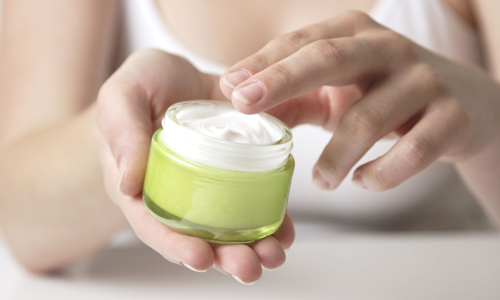
A moisturizer is a skincare product designed to hydrate and protect the skin. It typically contains a mix of ingredients, including water, humectants (which attract moisture), emollients (which soften the skin), and occlusives (which form a protective barrier to prevent moisture loss). Moisturizers help to keep the skin hydrated, smooth, and resilient, making them an essential part of daily skincare routines for all skin types. They also aid in preventing dryness, flakiness, and irritation, and can be tailored to address specific skin concerns such as aging, and sensitivity. It also helps in healing acne in natural ways.
What Does Moisturizer Do?
- Hydration
Moisturizers are designed to hydrate the skin by attracting water to the outer layer of the skin (epidermis). They contain humectants like glycerin or hyaluronic acid, which draw moisture from the air and deeper skin layers, ensuring the skin remains plump and hydrated.
- Barrier Protection
Moisturizers strengthen the skin’s natural barrier by forming a protective layer over the skin. This barrier helps to lock in moisture and prevent external irritants, pollutants, and bacteria from penetrating the skin, reducing the risk of dryness and irritation.
- Softening and Smoothing
The emollients in moisturizers help to soften and smooth the skin by filling in gaps between skin cells, leading to a smoother texture. This effect makes the skin feel more supple and can improve the appearance of rough or flaky areas.
- Addressing Skin Concerns
Moisturizers can be formulated to target specific skin concerns such as acne, aging, or sensitivity. Ingredients like retinol, peptides, or salicylic acid can be added to address issues like fine lines, blemishes, or redness, making the moisturizer a versatile part of any skincare routine.
What is Facial Oil?

Facial oil is a skincare product made from various natural oils that are designed to nourish and protect the skin. These oils are often rich in essential fatty acids, vitamins, and antioxidants, which help moisturize the skin, enhance its natural barrier, and provide a radiant glow. Unlike moisturizers, which are typically water-based, facial oils are oil-based and work by sealing in moisture and delivering nutrients directly to the skin. They can be used by all skin types, though they are especially beneficial for dry or mature skin, and are typically applied as the last step in a skincare routine to lock in hydration.
What Does Facial Oil Do?
- Moisture Retention
Facial oils help to seal in moisture by creating a protective layer on the skin's surface. This layer prevents water loss, keeping the skin hydrated and soft, especially in dry or harsh environments. Oils like jojoba or argan mimic the skin’s natural oils, making them highly effective at locking in moisture.
- Nourishment
Rich in essential fatty acids, vitamins, and antioxidants, facial oils provide deep nourishment to the skin. They help to repair the skin barrier, promote cell regeneration, and deliver nutrients that support overall skin health, making the skin look radiant and healthy.
- Soothing and Calming
Many facial oils have anti-inflammatory properties that help soothe and calm irritated or sensitive skin. Oils like chamomile or rosehip can reduce redness, inflammation, and even acne, making them ideal for skin that needs extra care.
- Enhancing Skin Barrier
Facial oils strengthen the skin’s natural barrier, protecting it from environmental stressors like pollution and harsh weather. This enhanced barrier helps in preventing damage from external factors, leading to more resilient and balanced skin over time.
Must Read: 10 Beauty Routines That Improve Skin Texture Overnight
Differences Between Face Oils and Moisturizers
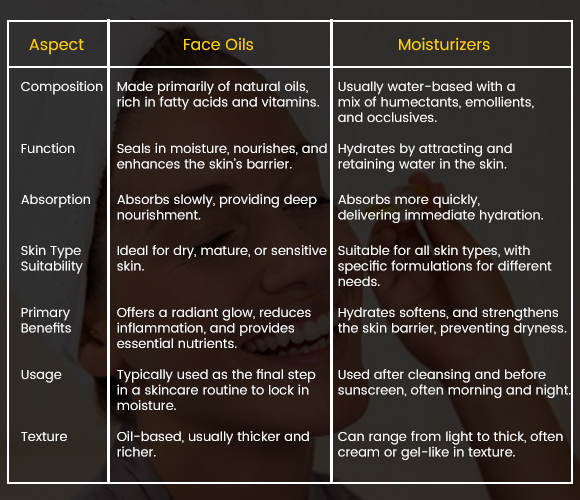
Best Oil for Face
Here’s a breakdown of some of the best face oils for all skin types, along with their benefits:
- Jojoba Oil
Jojoba oil is very similar to the skin's natural sebum, making it highly compatible with all skin types. It’s non-comedogenic, meaning it won’t clog pores, and it helps balance oil production, which is beneficial for both oily and dry skin. It also has anti-inflammatory properties, which can soothe sensitive skin and reduce redness.
- Argan Oil
Rich in vitamin E and essential fatty acids, argan oil is a powerful antioxidant that hydrates and nourishes the skin. It helps to soften and smooth the skin, reducing the appearance of fine lines and promoting elasticity. Argan oil is light and absorbs quickly, making it suitable for all skin types, including oily and acne-prone skin.
- Rosehip Oil
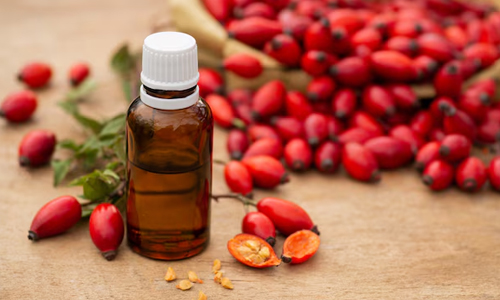
Rosehip oil is packed with vitamins A and C, which help to brighten the skin, reduce hyperpigmentation, and promote collagen production. It’s also rich in essential fatty acids, which help to repair and regenerate the skin. Rosehip oil is lightweight and non-greasy, making it ideal for all skin types, including sensitive and acne-prone skin.
- Marula Oil
Marula oil is a deeply hydrating and nourishing oil that’s rich in antioxidants and essential fatty acids. It helps to protect the skin from environmental stressors and free radicals, while also providing intense moisture. Marula oil is non-greasy and fast-absorbing, making it suitable for all skin types, including oily and combination skin.
- Squalane Oil
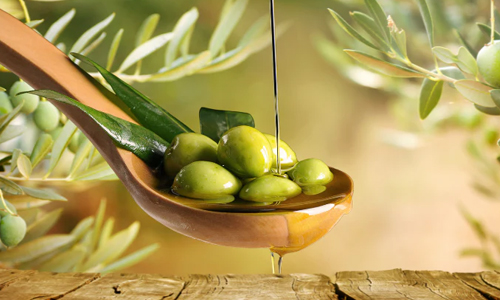
Squalane oil is a lightweight, non-greasy oil that mimics the skin’s natural oils. It hydrates and locks in moisture without clogging pores, making it great for all skin types, including sensitive and acne-prone skin. Squalane oil also has anti-inflammatory properties and can help soothe and calm the skin.
- Grapeseed Oil
Grapeseed oil is rich in antioxidants, including vitamin E, and has anti-inflammatory properties. It helps to tighten and tone the skin, reduce the appearance of scars, and balance oil production. Grapeseed oil is lightweight and absorbs quickly, making it a good option for all skin types, particularly oily and acne-prone skin.
- Camellia Oil
Camellia oil is a gentle, lightweight oil that is rich in oleic acid, and vitamins A, D, E, and K. It provides deep hydration and nourishment while improving skin elasticity and softness. Camellia oil is non-greasy and suitable for all skin types, including sensitive and aging skin.
These oils offer a range of benefits that cater to various skin concerns while being gentle enough for all skin types.
Best Moisturizer To Use
Here’s an overview of some of the best types of moisturizers for all skin types, along with their benefits:
- Hyaluronic Acid-Based Moisturizers
Hyaluronic acid is a powerful humectant that can hold up to 1,000 times its weight in water, making it highly effective at hydrating the skin. These moisturizers are lightweight, absorb quickly, and provide long-lasting hydration without feeling greasy. They are suitable for all skin types, particularly for those who need extra moisture without heaviness.
- Gel-Based Moisturizers
Gel-based moisturizers are water-based and often contain ingredients like aloe vera, glycerin, or hyaluronic acid. They are lightweight, non-greasy, and quickly absorbed, making them ideal for oily, combination, and acne-prone skin. However, they are also hydrating enough for dry skin when layered with other products.
- Ceramide-Based Moisturizers
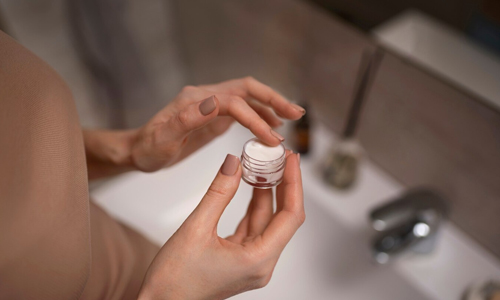
Ceramides are lipids (fats) that help restore and maintain the skin’s natural barrier. Moisturizers containing ceramides are excellent for all skin types, especially for dry or sensitive skin. They help to lock in moisture, protect against environmental irritants, and prevent water loss, keeping the skin hydrated and protected.
- Oil-Free Moisturizers
Oil-free moisturizers are formulated to hydrate the skin without adding extra oil, making them ideal for oily, combination, and acne-prone skin. These moisturizers often include ingredients like glycerin, aloe vera, or hyaluronic acid to provide moisture without clogging pores, ensuring a matte finish while keeping the skin balanced.
- Shea Butter-Based Moisturizers
Shea butter is a rich emollient that deeply nourishes and softens the skin. Moisturizers with shea butter are excellent for dry and sensitive skin but can also be used by all skin types for extra hydration, especially in dry climates or during winter. They help to repair the skin’s barrier and soothe irritation.
- Niacinamide-Based Moisturizers

Niacinamide (vitamin B3) is a versatile ingredient that helps to improve skin texture, reduce the appearance of pores, and even out skin tone. Moisturizers with niacinamide are suitable for all skin types, including sensitive and acne-prone skin, as they help to calm inflammation, strengthen the skin barrier, and provide balanced hydration.
Related: In What Ways Niacin Benefits For Skin?
- Aloe Vera-Based Moisturizers
Aloe vera is known for its soothing and hydrating properties. Moisturizers with aloe vera are lightweight and absorb quickly, making them suitable for all skin types, including sensitive and irritated skin. They provide a cooling effect, calm redness, and are especially beneficial after sun exposure.
Should I Use a Moisturizer, Oil, or Both?
Whether you should use a moisturizer, oil, or both depends on your skin type, concerns, and the time of year. Here's a guide to help you decide:
- Moisturizer Alone
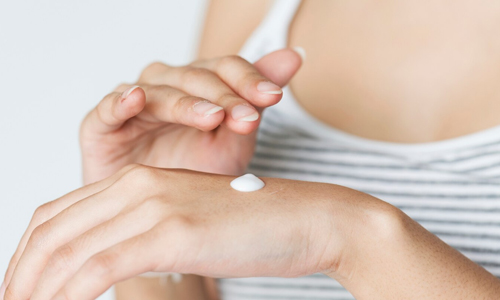
Best For: Oily or Acne-Prone Skin
Example: If you have oily or acne-prone skin, a lightweight, oil-free moisturizer like is often enough to provide hydration without adding extra oil. Moisturizers with ingredients like hyaluronic acid or glycerin will keep your skin hydrated without clogging pores or making your skin feel greasy.
When to Use: Daily, morning, and night. Especially good for humid climates where the skin doesn’t need extra oils.
- Oil Alone

Best For: Dry or Mature Skin
Example: For those with dry or mature skin, facial oils like Argan Oil or Rosehip Oil can provide intense hydration and nourishment. These oils are rich in essential fatty acids and vitamins that help to repair and protect the skin barrier, making them ideal for very dry skin.
When to Use: Primarily at night, as oils can be heavier and take longer to absorb. They can also be used during the day if your skin is extremely dry.
- Moisturizer and Oil Together
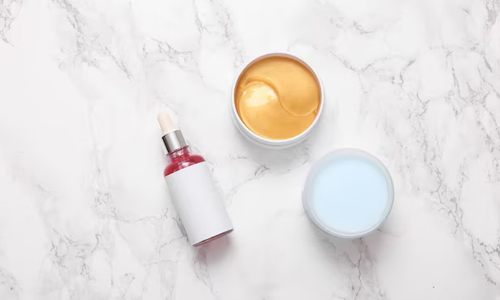
Best For: Combination, Sensitive, or Normal Skin; or Seasonal Adjustments
Example: Using both a moisturizer and oil can be beneficial for combination skin or during colder months when the skin needs extra hydration. For example, you might use CeraVe Moisturizing Cream to hydrate and strengthen the skin barrier, followed by a few drops of Jojoba Oil to lock in the moisture and provide additional nourishment.
When to Use: Apply your moisturizer first to hydrate the skin, then follow with a facial oil to seal in the moisture. This method is particularly effective at night or in dry, cold weather.
Combination Approach
Layering: For normal to combination skin, you might use a lightweight moisturizer during the day and add a facial oil at night. This allows your skin to stay hydrated without feeling too heavy during the day while benefiting from the extra nourishment at night.
Targeted Use: You can also use a moisturizer on your entire face and apply oil only to dry areas or patches that need more attention.
Wrapping Up
The choice between a moisturizer, oil, or both largely depends on your skin’s specific needs at different times. For most people, a combination of both products can offer the best results, providing both hydration and protection tailored to their skin type and environmental conditions.
FAQ :
1. What are the disadvantages of applying oil on the face?
Using facial oil can clog pores, trigger breakouts, and leave a greasy finish, particularly on oily or acne-prone skin types.
2. What's more moisturizing, oil or cream?
Creams are usually more moisturizing than oils, as they hydrate with water-based ingredients and lock in moisture with oils.
3. Can you skip moisturizer if you use face oil?
You can skip moisturizer when using a face oil, but for optimal hydration, it's best to use both—moisturizer hydrates and oil locks it in.
4. Can I use jojoba oil instead of moisturizer?
Jojoba oil can be used instead of moisturizer since it mimics natural skin oils, but it doesn't hydrate like water-based moisturizers do.
5. Is oil or cream better for aging skin?
Creams are often better for aging skin as they provide hydration and nourishment, while oils help enhance the skin barrier and lock in moisture.

